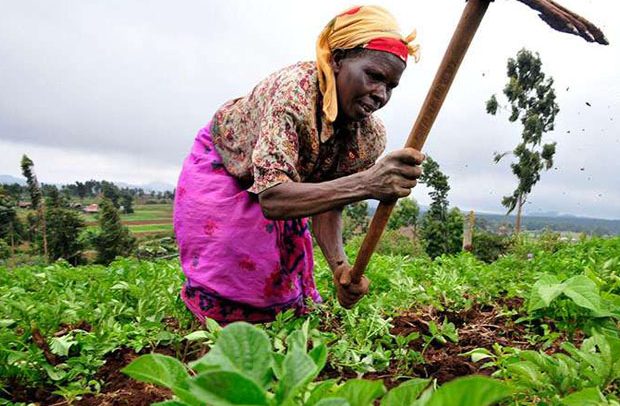One of the key necessities of life is food, while the other two are shelter and clothing.
That being the case, households and for that matter governments have strived to create the enabling environment for food production to reduce if not eradicate the country’s over-reliance on food handouts. It is said that a country that cannot feed its citizens cannot be truly independent.
Remember Esau and Jacob in the Scriptures, where Esau sold his birthright to his brother Jacob because of food. So you see the importance of food in our everyday lives, and even in our present harsh economic conditions every Tom, Dick and Harry as well as rich and poor tries hard to afford at least a meal a day instead of the normal three.
In Ghana, peasant farmers have used the tedious means of the cutlass and hoe to till the land to feed millions of people unlike the advanced societies where mechanised farming is the order of the day. Also, commercial or large scale is encouraged by the state even with huge subsidies to make food the cheapest item in the market. In those societies, agriculture is accorded the highest priority and both young and old encouraged to venture into it. In addition, farming in those countries is a lucrative venture, hence we in mostly agrarian communities imports many tones of rice and other grains from Indonesia, India, Ukraine and the United States of America.
For sometime now, the Ministry of Food and Agriculture, farmers and others in the food value chain have bemoaned the volume of food imports from such countries and even the Sahelian region in the case of tomatoes and onion.
There is the story of some Japanese investors who in the company of Ghanaian officials were so thrilled by the vast land of grass from Accra to Tamale that they asked whether we eat the grass. Certainly we do not eat grass, but only demonstrates to us that we have a huge tract of fallow lands that can be tilled for our staples and other food crops for local consumption and for export.
Ghana has the capacity to feed itself and for export. The late General Kutu Acheampong demonstrated it during the “Operation Feed Yourself” programme during which northern Ghana produced so much grains despite the challenge of the technology to mill it. Then fast forward, in 2017 the Akufo-Addo government launched the “Planting for Food and Jobs” to motivate the people to turn to the land not only for food but to provide jobs to the teeming youth.
Those who witnessed the outcome of that flagship programme of the government will testify to its success when in 2018 many trucks came from neighbouring countries to buy plantain and maize.
The agricultural sector holds great potential only if the government provides the enabling environment for the private sector to invest. Even in the midst of economic crisis and during the COVID-19 period when elsewhere they were rationing food items, Ghana was spared that agony. Those who think the agriculture sector has collapsed have refused to see the reality but wish gloom and doom for the country.
One such group that can be likened to prophet of doom is the General Agricultural Workers Union (GAWU) whose General Secretary has always slammed the government for not delivering abundant and cheap food to the people. He has never aligned with the initiative but we are yet to see his comprehensive blueprint for the country.
Realising though that doing the same thing with the same result, President Akufo-Addo has launched the second phase of the “Planting for Food and Jobs” to bring new impetus to the initiative. The government recognised that our reliance on peasant farmers alone to produce to feed us and for export was not going to work, and therefore decided during the phase two to involve commercial farmers.


